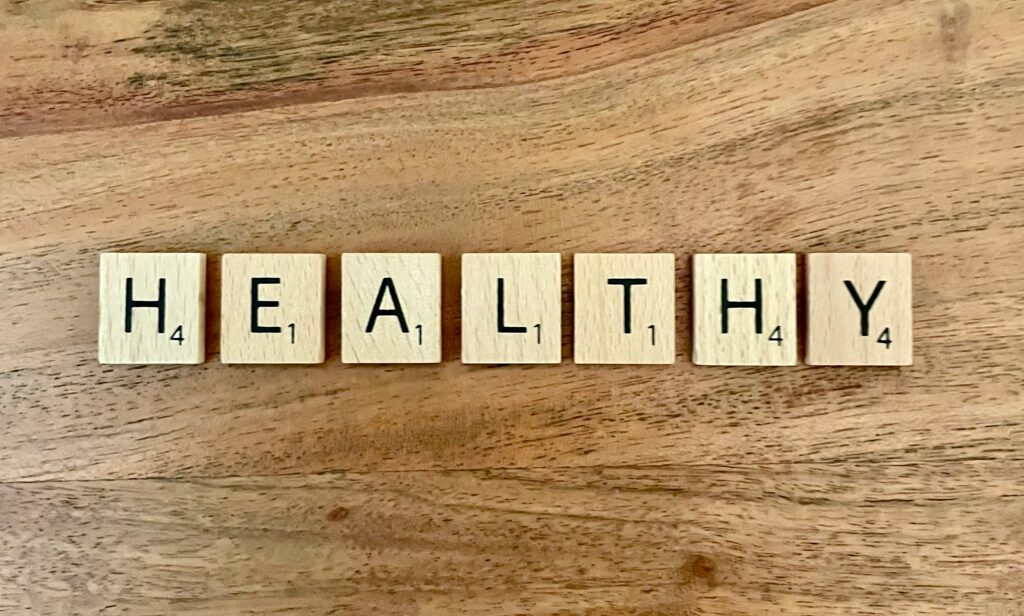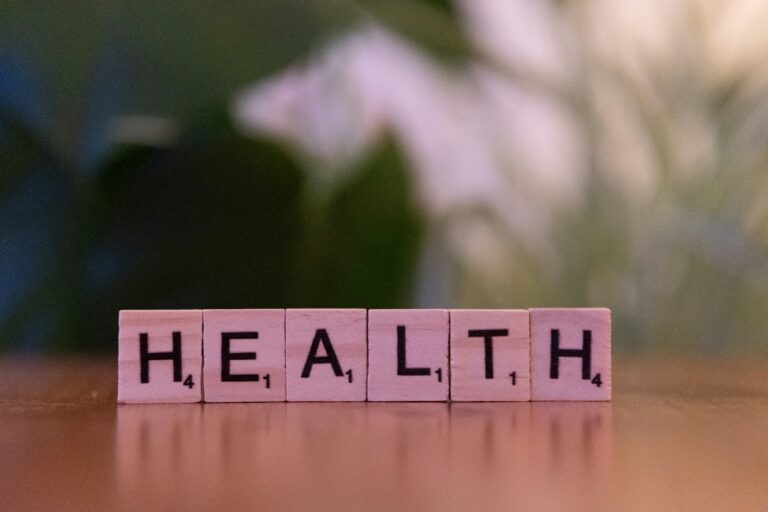
Aging, an inevitable process that carries with it a blend of wisdom, experience, and unfortunately, the potential for health decline. However, the secret to aging gracefully may lie in an element of life we all partake in daily – nutrition. The way we fuel our bodies can significantly influence how we age, and understanding the basics of nutrition may be the key to unlocking a healthier, more vibrant old age.
Throughout our upcoming discussion, we will delve into the secrets of nutrition that promote healthy aging. We’ll explore how certain dietary choices can not only help to manage age-related conditions but may even delay their onset. Nutrition is a powerful tool that, when used correctly, can turn the tide in favor of those aiming to age with grace and vitality.
We will unfold how different types of food impact various aspects of health, shedding light on the concept of functional food. You’ll discover the role of micronutrients and antioxidants in combating age-related oxidative stress and inflammation, and how proteins, healthy fats, and fiber contribute to maintaining muscle mass, brain health, and digestive function, respectively.
Moreover, we will address the myths surrounding nutrition and aging, paving the way towards more informed, beneficial dietary decisions. From the demonization of certain food groups to the over-hyping of others, we aim to dismantle misconceptions and provide you with reliable, evidence-based information.
As we journey together through this exploration of nutrition and its pivotal role in aging, we hope to equip you with the knowledge and insights needed to navigate your dietary choices better. After all, aging is a fact of life, but how we age can be a work of art. Buckle up for an enlightening exploration of the symbiotic relationship between nutrition and healthy aging.
The Science of Aging and Nutrition
The human body is an incredibly complex system that is constantly changing and evolving, especially as we age. The process of aging is influenced by a variety of factors, including genetics, lifestyle, and, importantly, nutrition. Aging gracefully is not just about maintaining physical appearance, it is about promoting health and longevity.
From a scientific perspective, aging is characterized by a progressive loss of physiological integrity, leading to impaired function and increased vulnerability to death. It’s a complex biological process, influenced by a myriad of factors, both intrinsic and extrinsic, and nutrition plays a pivotal role in this process.
Nutrition can influence the aging process in various ways. It can help maintain cellular health, support the immune system, and reduce the risk of chronic diseases like heart disease and diabetes. Furthermore, certain nutrients can promote brain health and slow down cognitive decline, a common aspect of aging.
Understanding the Basics of Nutrition
To support graceful and healthy aging, it is essential to have a foundational understanding of nutrition and its critical role in the body’s function and long-term well-being. Nutrition is not merely about calorie consumption—it is about fueling the body with the right balance of macronutrients and micronutrients to sustain energy, support cellular repair, and optimize organ function.
- Macronutrients include proteins, carbohydrates, and fats, which are needed in larger quantities to meet the body’s daily energy and structural needs.
- Proteins are vital for the growth, maintenance, and repair of tissues, including muscles, organs, and skin. They are composed of amino acids, some of which must be obtained through diet. Adequate protein intake becomes especially important with age to prevent muscle loss (sarcopenia) and support immune function.
- Carbohydrates are the body’s primary source of quick energy. When consumed wisely—especially in the form of complex carbohydrates like whole grains, legumes, and vegetables—they help regulate blood sugar and provide sustained energy throughout the day.
- Fats, though often misunderstood, are essential for nutrient absorption, brain function, cell membrane integrity, and hormone production. Healthy fats, such as those found in avocados, olive oil, nuts, seeds, and fatty fish, should be embraced, while trans fats and excessive saturated fats should be minimized.
- Micronutrients, including vitamins and minerals, are required in smaller amounts but are no less critical. They regulate countless physiological processes, such as bone health (calcium, vitamin D), immune response (zinc, vitamin C), red blood cell formation (iron, vitamin B12), and neurological function (folate, magnesium). A well-rounded diet ensures these nutrients are obtained consistently and naturally.
Nutrition for Healthy Aging
Nutrition plays a profound and measurable role in how we age—physically, cognitively, and emotionally. The foods we eat can either promote vitality and resilience or contribute to inflammation, disease, and early decline. A nutrient-rich, balanced diet serves as both a preventative tool and a healing agent, helping to delay the onset of age-related conditions and enhance quality of life in later years.
A diet focused on whole, minimally processed foods offers the best defense against premature aging. Incorporating a colorful array of fruits and vegetables provides the body with essential antioxidants, fiber, and phytochemicals that protect against oxidative stress and support digestive health. Whole grains deliver sustained energy and are rich in B vitamins and trace minerals. Lean proteins like poultry, legumes, eggs, tofu, and fish supply essential amino acids without the excess saturated fat often found in red meats. Healthy fats from sources such as olive oil, nuts, seeds, and fatty fish support cardiovascular health and brain function.
Conversely, diets high in processed foods, refined sugars, excess sodium, and unhealthy fats are associated with increased inflammation, metabolic disorders, and accelerated cellular aging. These eating patterns can contribute to obesity, type 2 diabetes, hypertension, and cognitive decline.
To age healthfully, it’s not just about what to avoid—it’s about what to embrace. By nourishing the body with a wide variety of wholesome, nutrient-dense foods, individuals can enhance vitality, maintain independence, and enjoy a higher quality of life well into their later years.
Antioxidants and Aging
Antioxidants are compounds that help protect the body from free radicals, unstable molecules that can cause damage to cells, contributing to aging and diseases. Fruits and vegetables are rich sources of antioxidants. Including a variety of them in your diet can help fight oxidative stress and slow down the aging process.
Importance of Hydration in Aging
As we grow older, the importance of proper hydration becomes increasingly critical to overall health and wellness. Water is involved in virtually every function of the human body—from regulating body temperature, transporting nutrients and oxygen, to aiding digestion and eliminating waste. However, with age, the body undergoes physiological changes that can make staying adequately hydrated more challenging. One of the most significant changes is a decreased sense of thirst, which means older adults may not feel thirsty even when their bodies need water. Additionally, the body’s ability to conserve fluids and respond to dehydration becomes less efficient, increasing the risk of health complications.
Chronic dehydration in older adults can lead to a range of issues including constipation, urinary tract infections, fatigue, confusion, dizziness, and even falls, due to reduced balance and alertness. On a more subtle level, poor hydration can affect cognitive performance, joint lubrication, and skin health, accelerating the appearance of aging and reducing quality of life.
Maintaining proper hydration supports a wide array of functions, including skin elasticity, circulatory efficiency, detoxification, and cellular repair. Staying hydrated also helps regulate blood pressure and keeps the kidneys functioning optimally—two key aspects of aging gracefully and avoiding preventable health issues.
Hydration Tips
Incorporating practical hydration habits into daily life is essential, especially for aging adults. Here are some effective strategies to ensure you stay well-hydrated throughout the day:
- Drink water regularly, even if you don’t feel thirsty. Make a habit of sipping small amounts of water consistently, aiming for at least 6–8 glasses a day depending on body size, climate, and activity level.
- Incorporate water-rich foods into your diet. Foods like cucumbers, watermelon, oranges, strawberries, celery, and lettuce have high water content and can contribute to overall hydration while also providing essential vitamins and fiber.
- Limit dehydrating substances, such as caffeinated beverages (e.g., coffee, tea, energy drinks) and alcohol, which can increase fluid loss. If consumed, try to balance them with extra water intake.
- Carry a reusable water bottle to encourage regular drinking, especially when outside or exercising. Adding slices of lemon, mint, or berries can enhance flavor and make water more appealing.
- Monitor signs of dehydration, such as dark-colored urine, dry mouth, fatigue, headache, or dizziness. These symptoms should be taken seriously, particularly in older adults.
By adopting these simple habits, older individuals can maintain hydration levels that support not only physical health but also mental clarity, energy levels, and emotional well-being.
Exercise and Nutrition
Physical activity complements nutrition in promoting healthy aging. Exercise can help maintain muscle mass, improve cardiovascular health, and boost mood and cognitive function. Furthermore, it can help manage body weight and reduce the risk of chronic diseases.
Nutrition for Exercise
Proper nutrition can enhance the benefits of exercise. Consuming a balanced diet provides the energy needed for physical activity and aids in recovery and muscle repair. It’s important to include a mix of proteins, carbohydrates, and healthy fats in your diet, especially if you engage in regular exercise.
Mental Health and Nutrition

In recent years, growing evidence has underscored the powerful link between nutrition and mental health, particularly as we age. While physical health often receives the spotlight in discussions about aging well, brain health is equally vital for maintaining independence, emotional stability, memory function, and quality of life. The foods we consume play a direct role in shaping not only our physical well-being but also our cognitive performance, mood regulation, and mental resilience.
As we grow older, the brain becomes more vulnerable to inflammation, oxidative damage, and nutrient deficiencies that can impair its function. Diets rich in ultra-processed foods, refined sugars, and unhealthy fats can contribute to cognitive decline, depression, and even the development of neurodegenerative diseases such as Alzheimer’s and dementia. In contrast, a well-balanced, nutrient-dense diet can serve as a protective factor, fueling the brain, supporting neurotransmitter production, and promoting neuroplasticity, which is the brain’s ability to form new connections and adapt over time.
Brain-Boosting Nutrients
Several specific nutrients are recognized for their ability to support cognitive function and protect the brain as we age. Among the most important are omega-3 fatty acids, B vitamins, and antioxidants.
Antioxidants, such as vitamin C, vitamin E, polyphenols, and flavonoids, protect brain cells from the damaging effects of oxidative stress, which occurs when harmful free radicals accumulate in the body. Colorful fruits and vegetables—like blueberries, spinach, kale, and dark chocolate—are rich in these powerful compounds and have been shown to improve memory, learning, and mental clarity.
Omega-3 fatty acids, particularly EPA and DHA, are essential fats found in foods like salmon, sardines, flaxseeds, chia seeds, and walnuts. These healthy fats play a crucial role in maintaining neuronal membrane fluidity, reducing inflammation in the brain, and enhancing communication between brain cells. Studies have linked higher omega-3 intake with better memory, focus, and even reduced symptoms of depression and anxiety.
B vitamins—especially B6 (pyridoxine), B9 (folate), and B12 (cobalamin)—are critical for energy production, the formation of neurotransmitters like serotonin and dopamine, and the reduction of homocysteine levels, an amino acid linked to brain atrophy and cognitive impairment. A deficiency in any of these vitamins can accelerate brain aging and increase the risk of neurological decline.
Aging Gracefully Through Nutrition
In conclusion, nutrition is a key pillar in supporting healthy aging, especially when it comes to preserving mental sharpness and emotional well-being. A balanced diet rich in whole, unprocessed foods, lean proteins, healthy fats, fiber, and hydrating fluids can help reduce the risk of age-related cognitive decline and mood disorders.
When combined with other beneficial lifestyle practices—such as regular physical activity, quality sleep, hydration, social engagement, and stress reduction—good nutrition forms the foundation for holistic health and graceful aging. Investing in brain-friendly foods today can lead to a healthier, more vibrant tomorrow.
Conclusion
In conclusion, mastering the secrets of nutrition basics can significantly contribute to healthy aging and allow us to age gracefully. A balanced diet, rich in vitamins, minerals, and other essential nutrients is the key to maintaining good health and slowing down the aging process. With an emphasis on consuming more fruits, vegetables, lean proteins, and healthy fats, we can prevent age-related diseases and boost our physical and mental vitality. At the same time, it’s critical to limit our intake of processed foods, sugars, and unhealthy fats that can speed up aging and harm our overall health. Moreover, maintaining good hydration and regular physical activity is equally important in our quest for healthy aging. In essence, the secrets of nutrition for healthy aging are not as elusive as they seem. It’s all about mindful eating, a balanced diet, regular exercise, and a positive lifestyle. Aging is inevitable, but with the right nutritional approach, we can certainly make the journey smoother and more enjoyable. Let’s unlock the secrets of nutrition basics and embrace the golden years of our lives with grace, vitality, and wellness. 💪🍏🥦🧘♀️



